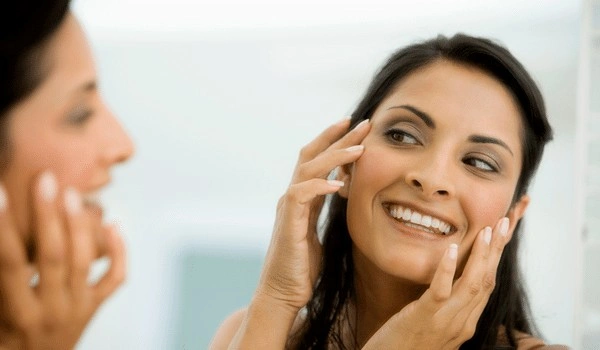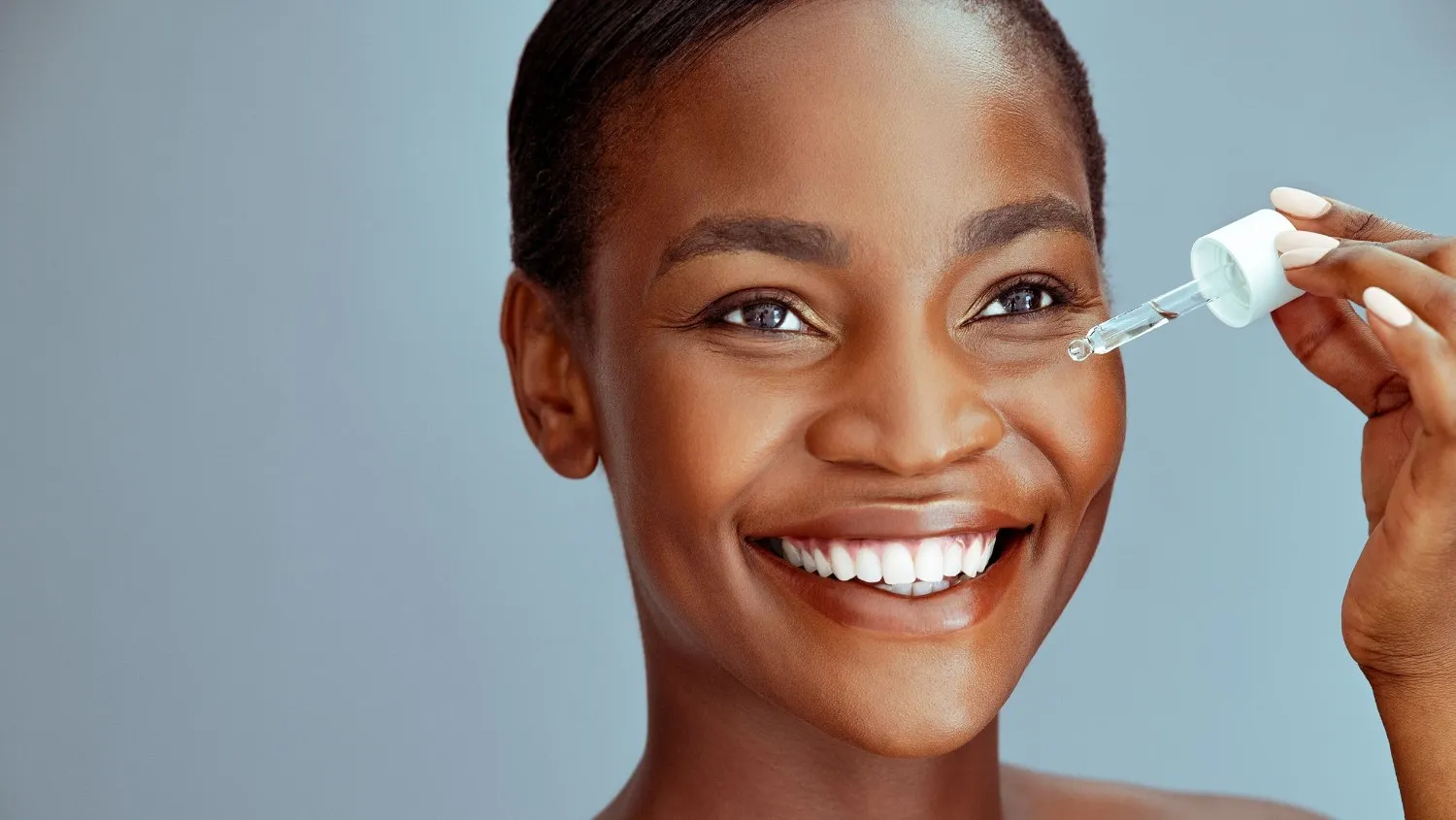Table of Contents
- What is Resveratrol?
- What is Retinol?
- What are the benefits of resveratrol?
- What are the benefits of retinol?
- Potential Side Effects of Resveratrol and Retinol
- What are the main differences between resveratrol and retinol?
- Can You Use Resveratrol and Retinol Together?
- Who Should Use Resveratrol?
- Who Should Use Retinol?
- Resveratrol vs Retinol: Which One Is Better?
- Conclusion
- FAQs
When it comes to skincare, the choice between resveratrol and retinol often depends on your goals. Both are highly effective but cater to different needs.
Resveratrol offers antioxidant protection, shielding the skin from environmental damage while promoting a calm, radiant complexion. Retinol, on the other hand, targets deeper concerns like fine lines, uneven texture, and acne, delivering noticeable results over time.
Understanding the unique benefits of each ingredient is key to creating a routine that aligns with your skin’s needs.
Whether you’re focused on prevention or transformation, knowing how resveratrol and retinol work can help you choose the right solution for your skincare journey.
NMN + Resveratrol
Cellular NAD+ booster with ultra‑pure NMN and Resveratrol, at research‑backed doses.*
What is Resveratrol?
 Resveratrol is a plant-based antioxidant found in red grapes, berries, and peanuts. Known for its anti-inflammatory and protective properties, it helps shield your skin from environmental stressors like pollution and UV damage while promoting a smoother, more radiant complexion.
Resveratrol is a plant-based antioxidant found in red grapes, berries, and peanuts. Known for its anti-inflammatory and protective properties, it helps shield your skin from environmental stressors like pollution and UV damage while promoting a smoother, more radiant complexion.
Often called the “longevity molecule,” resveratrol does more than just protect. It calms irritated skin, reduces redness, and improves elasticity over time.
This makes it a favorite among those looking to maintain a youthful glow without harsh ingredients. Its gentle nature also makes it ideal for sensitive skin types.
Whether you are sipping on a glass of red wine or applying it through skincare, resveratrol is like a shield that may defend your skin against daily aggressors.
What is Retinol?
 Retinol, a form of Vitamin A, is a skincare staple for reducing fine lines, wrinkles, and dark spots. It speeds up cell turnover and stimulates collagen production, making your skin look smoother and evener over time.
Retinol, a form of Vitamin A, is a skincare staple for reducing fine lines, wrinkles, and dark spots. It speeds up cell turnover and stimulates collagen production, making your skin look smoother and evener over time.
This powerhouse ingredient is a go-to for anyone tackling visible signs of aging or stubborn acne. With consistent use, retinol minimizes the appearance of pores and promotes a brighter complexion.
However, it is best introduced gradually to avoid irritation, especially if you are new to it.
Retinol is like your skin’s personal trainer—pushing it to be its best while requiring some patience and care. The right routine can transform your skin’s texture and tone, leaving you feeling confident and refreshed.
What are the benefits of resveratrol?
 Resveratrol has gained attention for its antioxidant and anti-inflammatory properties, backed by various studies highlighting its potential in skincare. Let us take a closer look:
Resveratrol has gained attention for its antioxidant and anti-inflammatory properties, backed by various studies highlighting its potential in skincare. Let us take a closer look:
Protects Against Oxidative Stress
A study published in The Journal of Clinical and Aesthetic Dermatology highlights resveratrol’s ability to neutralize free radicals, which can damage skin cells and accelerate aging (1).
Reduces Skin Inflammation
According to studies, resveratrol exhibits strong anti-inflammatory properties. This can soothe irritated skin, reduce redness, and help with acne or rosacea (2).
Enhances Skin Elasticity and Firmness
A study suggests that resveratrol can stimulate collagen synthesis, improving skin elasticity and reducing the appearance of fine lines (3). This makes it a popular choice for anti-aging products.
Evens Out Skin Tone
Studies suggest that resveratrol may help inhibit melanin production, reducing dark spots and hyperpigmentation (4). This results in a more uniform complexion.
What are the benefits of retinol?
 Retinol is one of the most researched ingredients in skincare, with numerous studies backing its effectiveness for various concerns. Here is how it can help:
Retinol is one of the most researched ingredients in skincare, with numerous studies backing its effectiveness for various concerns. Here is how it can help:
Reduces Fine Lines and Wrinkles
Studies have shown that retinol stimulates collagen production. This reduces fine lines and wrinkles, improving skin’s overall firmness and smoothness (5).
Improves Skin Texture
A review in The Journal of Investigative Dermatology emphasizes retinol’s role in accelerating cell turnover. This helps shed dead skin cells and reveals a smoother, more refined surface underneath (6).
Clears Acne
The American Academy of Dermatology noted that Retinol’s ability to unclog pores is well-documented. Reducing oil buildup and promoting exfoliation helps treat and prevent acne, making it a staple in acne-focused products (7).
Fades Dark Spots and Hyperpigmentation
Studies highlight retinol’s ability to regulate melanin production. This helps fade age spots, sun damage, and acne scars, leading to a brighter, more even complexion (8).
Potential Side Effects of Resveratrol and Retinol
While resveratrol and retinol offer significant skin benefits, they are not without potential side effects. Understanding how they might affect your skin can help you use them more effectively.
Side Effects of Resveratrol
Resveratrol is generally well-tolerated, but some individuals may experience minor side effects, especially when used in high concentrations or combined with other actives.
Skin Sensitivity: A study notes that excessive use can sometimes lead to mild redness or irritation (9).
Allergic Reactions: Those allergic to resveratrol-containing plants like grapes may experience itching or rash when applied topically.
Incompatibility with Certain Products: Resveratrol may not pair well with strong acids or exfoliants, potentially leading to skin irritation.
Side Effects of Retinol
Retinol is highly effective but can cause noticeable side effects, especially when you are just starting out.
Dryness and Peeling: A study published in The Archives of Dermatology highlights that retinol can strip moisture from the skin, leading to flaking or dryness (10).
Increased Sun Sensitivity: Retinol makes the skin more prone to sunburn (11). Sunscreen is a must when using retinol.
Irritation or Redness: New users often report redness or tingling as the skin adjusts.
Initial Breakouts: Retinol can cause purging, where clogged pores surface, leading to temporary acne flare-ups.
NMN + Resveratrol
Cellular NAD+ booster with ultra‑pure NMN and Resveratrol, at research‑backed doses.*
What are the main differences between resveratrol and retinol?
While both resveratrol and retinol are celebrated for their skin-enhancing properties, they cater to different needs and work in unique ways. Let us break it down:
Primary Function
Resveratrol is primarily an antioxidant that protects the skin from environmental damage and reduces inflammation. Retinol, on the other hand, stimulates cell turnover and collagen production to treat aging and acne.
Skin Compatibility
Resveratrol is gentle and ideal for sensitive skin, while retinol can cause irritation and dryness, especially for beginners.
Application Timing
Resveratrol can be used both in the morning and evening, while retinol is best applied at night due to its photosensitivity.
Long-term Benefits
Retinol delivers visible improvements in skin texture and fine lines over time. Resveratrol focuses on maintaining skin health and preventing damage from external factors.
Can You Use Resveratrol and Retinol Together?
-v1737582640718.webp) You can use resveratrol and retinol together, and they actually complement each other well. Resveratrol’s antioxidant and soothing properties help reduce the irritation that retinol may cause.
You can use resveratrol and retinol together, and they actually complement each other well. Resveratrol’s antioxidant and soothing properties help reduce the irritation that retinol may cause.
Research highlights that combining antioxidants like resveratrol with retinol can enhance their overall effectiveness without compromising the skin barrier (12).
For the best results, apply resveratrol in the morning and retinol at night, or consult a dermatologist to create a tailored routine.
Who Should Use Resveratrol?
Resveratrol is perfect for individuals looking to protect their skin from environmental stressors like pollution and UV damage.
Resveratrol is especially suitable for sensitive or aging skin, as it helps calm inflammation, improve elasticity, and reduce redness without causing irritation. If your skincare goals involve prevention and soothing, it is a fantastic choice.
Who Should Use Retinol?
Retinol is ideal for people who want to address visible signs of aging, such as fine lines, wrinkles, and uneven skin texture. It is also a great option for acne or post-acne marks.
While highly effective, it works best for individuals who can gradually introduce it into their routine to minimize dryness and irritation. Retinol users often need patience but are rewarded with transformative results.
Resveratrol vs Retinol: Which One Is Better?
Resveratrol excels in prevention, offering antioxidant protection and soothing benefits, making it a gentle option for sensitive skin. Retinol, on the other hand, is a proven solution for reversing signs of aging and improving skin texture.
Neither is inherently better; it depends on whether you need protection or targeted treatment. Many skincare enthusiasts find value in using both to maximize the effectiveness of their routines.
Conclusion
Deciding between resveratrol and retinol depends on your skin's unique needs. Resveratrol is a soothing antioxidant that shields and calms, making it ideal for prevention and gentle care.
Retinol, on the other hand, works deep within the skin to tackle fine lines, uneven texture, and acne, making it perfect for achieving visible transformations.
Together, they offer a balanced approach to skin protection and renewal.
Looking to harness the power of resveratrol for more than just your skin?
Try NMN + RESVERATROL, the ultimate supplement to boost your cellular NAD+ levels and support overall vitality. Featuring ultra-pure ingredients at research-backed doses, it’s your key to unlocking better cellular health. -v1737582687625.webp)
FAQs
Can I use resveratrol and retinol together?
Yes, combining resveratrol and retinol can enhance their effectiveness. Resveratrol's soothing properties can mitigate potential irritation from retinol, making the duo beneficial for many skin types.
Which is better for anti-aging: resveratrol or retinol?
Retinol is widely recognized for its anti-aging benefits, including reducing fine lines and improving skin texture. Resveratrol offers antioxidant protection, which helps prevent aging signs. Using both can provide comprehensive anti-aging care.
Is resveratrol suitable for sensitive skin?
Resveratrol is gentle and well-suited for sensitive skin, offering soothing and anti-inflammatory benefits.
How should I incorporate retinol into my skincare routine?
Start with a low concentration of retinol, applying it at night to clean dry skin. Gradually increase usage as your skin builds tolerance. Always use sunscreen during the day, as retinol can increase sun sensitivity.




